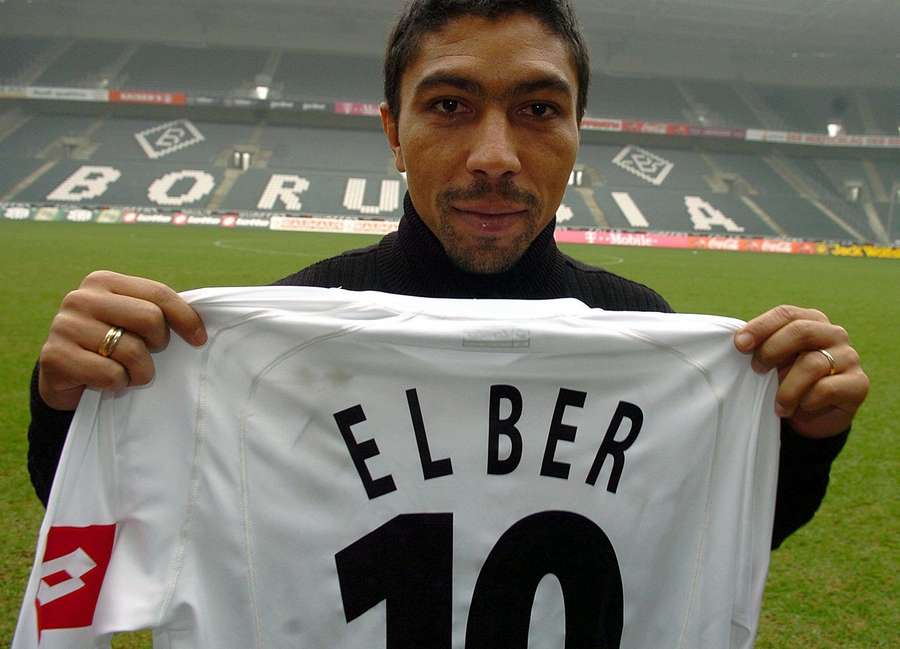EXCLUSIVE: Ex-Bayern star Elber on what Brazil has to learn from Germany and more
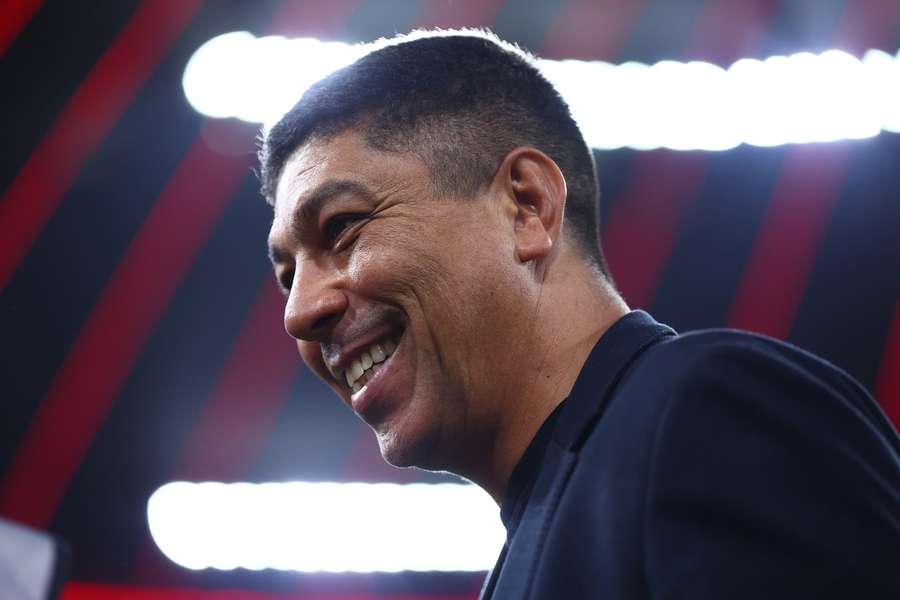
It was at Bayern Munich that Elber achieved the international breakthrough he had longed for, becoming one of the most important strikers of his generation. On his CV, four Bundesliga titles, one Club World Cup and one Champions League.
Now representing the German champions, attending matches and events to promote the club's brand, Elber uses all the knowledge he had on the team to strengthen relationships with investors, sponsors and fans, who still regard him as a great reference to one of the most golden times of the club's entire history.
In this exclusive interview with Flashscore, Elber talks about his early career, leaving Brazil at just 18 years old, the small friction with coach Zagallo, Brazilian football today and the lessons his country of origin can have with Germany, which has become his new home.
You ended up in Europe very early, before the age of 18. Do you have any regrets?
"I don't regret anything. I went at a good time, when I should have gone. In Italy there were already established players with international experience, like Careca, Aldair, Alemao and Dunga. The chance came after I was joint-goalscorer in the under-20 World Cup in Portugal, it happened overnight.
"My idea was to return to Londrina, but there was this agreement with Milan, who crossed a negotiation that was already advanced with a club in Switzerland. The value of the transaction was US$ 1 million, the most expensive amount paid for a player leaving Brazil playing in the under-20 category. It was not very common for such a young player to leave Brazil to play in Europe."
Do you consider yourself more recognised outside Brazil than inside?
"For sure. My whole career was spent outside Brazil. I only played three or four games for Londrina, I played more in the youth team than in the senior team. I didn't have the chance to play for teams from Rio or Sao Paulo. I even remember a national team match, when I was called up by Vanderlei Luxemburgo. He was unsure about the attack and opted for Edilson, who was better known in Brazil and would have more support from the fans. I realised then that my competition was tougher than I'd imagined."
Was your time with the Brazilian national team shorter than you thought?
"Yes, it was just 15 games and seven goals. Zagallo called me up for the first time. This happened not long after he told a German TV station that they had dozens of players like me playing in Brazil, that I could go on holiday because I wouldn't be playing for the national team.
"I answered saying that he was crazy, he barely knew me, he didn't even watch Bundesliga games. A month went by and he called me to play in a Gold Cup in the USA, to be part of a team that had Edmundo and Romario. It was a good squad. My time in the national team was short, but I scored my goals there."
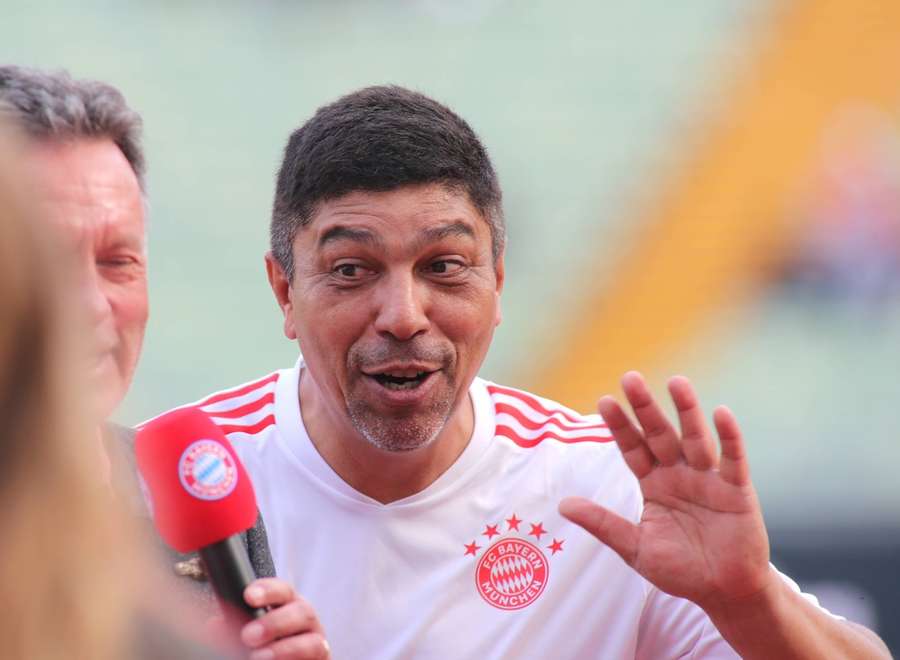
Do you have any regrets about this incident?
"None whatsoever. Just being in that national team was great, there were a lot of big-name players and I was very happy to have been remembered."
And you narrowly missed out on the 2002 World Cup, didn't you?
"Yes, I took part in all the qualifiers. There were two games to go and they were less complicated games, but Bayern Munich wouldn't let me go. Felipao called me and said I'd miss my chance and that the Selecao wouldn't make contact with Bayern to resolve the situation. I couldn't go without the agreement of the club that paid my wages. I didn't know who was right. Luisao ended up being called up, scored goals and made the most of the opportunity."
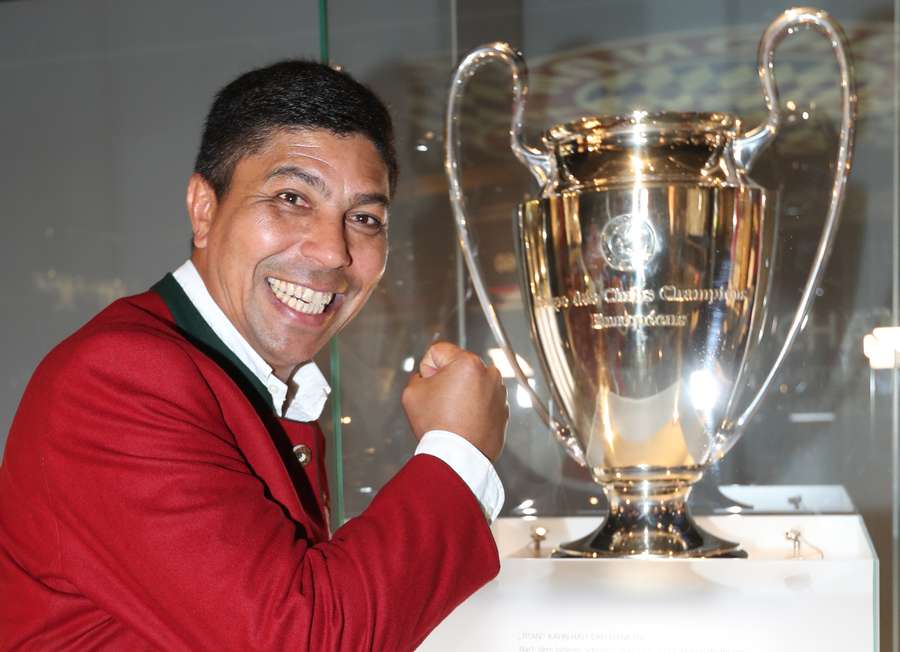
Did you even suggest Neymar to Bayern when he was still a promising Santos player?
"Yes. I went to watch a Copa Sao Paulo junior football tournament and Neymar was 15 or 16 and already playing well in the middle of older players. I spoke about him with the directors of Bayern, but I made it clear that it would be difficult to buy him, as there were already teams after him and he was already earning a good salary. It didn't take long for him to sign for Barcelona.
"It was Bayern's policy not to sign youngsters under 18, especially not from a foreign country. Here in Germany, this kind of situation is not well regarded. It's not part of the club's philosophy to bring the athlete so young into a completely different world, together with his parents and with so much involved, at the risk of it not working out.
"It's a situation that's frowned upon by German society to take such a young athlete from a less developed country to work for you. The ideal is to be at least 18, below that there is no business."
Why do you think you've done so well in Germany?
"I only spent a short time in the youth ranks in Brazil, I went to Europe very early. When I arrived at Milan, they loaned me out to Grasshopper, a Swiss club that plays a similar style of football to Germany. I spent three years in Switzerland before returning to Italy for the pre-season training camp with AC Milan. This honed my game and I arrived better prepared when I was transferred to German football."
(Note: Elber scored 44 goals in 96 games for Stuttgart before being transferred to Bayern, where he scored 139 goals in 266 games)
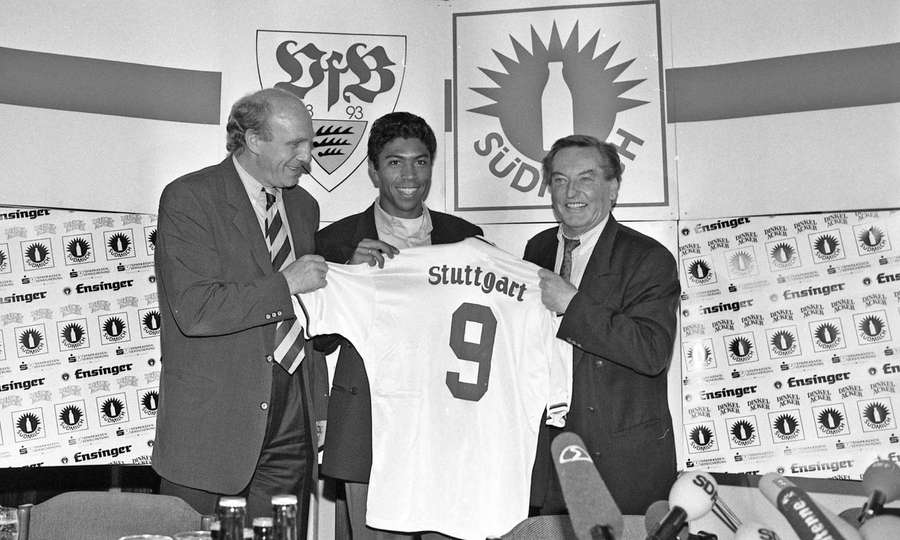
What is your role at Bayern?
"I'm an ambassador for the Bayern Munich brand worldwide, I work in the office inside the club and represent it to sponsors and fans. Other players like Claudio Pizarro, Paulo Sergio and Ze Roberto also do this job. I organize and take part in events. I am present at all home games, I go to the sponsors' and guests' boxes, I travel to Champions League matches and I am in charge of making this contact."
Do you have any other occupation?
"Thank God, no. There is no better job than mine. I have no interest in being a promoter or coach, it's too much of a headache. I'm in the right place and I benefit from being communicative, knowing and liking to talk about a club that I defended for six years and won many things with. It's a pleasure to pass on this knowledge and experience I had on the pitch at Bayern. I have been an ambassador for Bayern since 2016 when I was already living in Brazil. The club called me to be closer and today I live in Germany. My wife didn't think twice before accepting when I told her about the invitation."
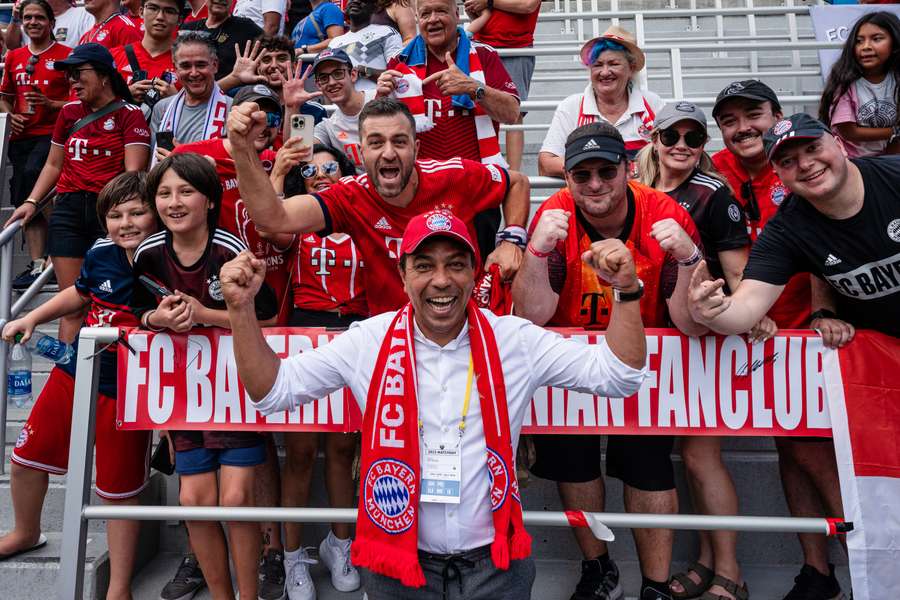
What would you say to young athletes who are going to Europe at an early age, a situation that's becoming more and more common?
"The first thing is to learn the language. If that happens, he'll have a better understanding of what the players and coaches are saying, he'll understand things better, why they happen in a certain way. That helps a lot. You have to be willing to work hard. You can't think that you are going to come here teaching the others how to play, you have to get into their system. It is possible that the player gets homesick and wants to return to a place where he is "flattered" and everyone knows him. That won't happen in Europe.
"Vini Jr., for example, was patient, he arrived calmly, eating his heart out, just like Rodrygo. They were patient to wait for their opportunities, they played in the lower team at Real Madrid before making it to the first team. When that happens, the chance to show their talent and establish themselves at the club is greater. If you think you're going to be a starter, without knowing that you'll have to sit on the bench for a while, it's better to stay in Brazil."
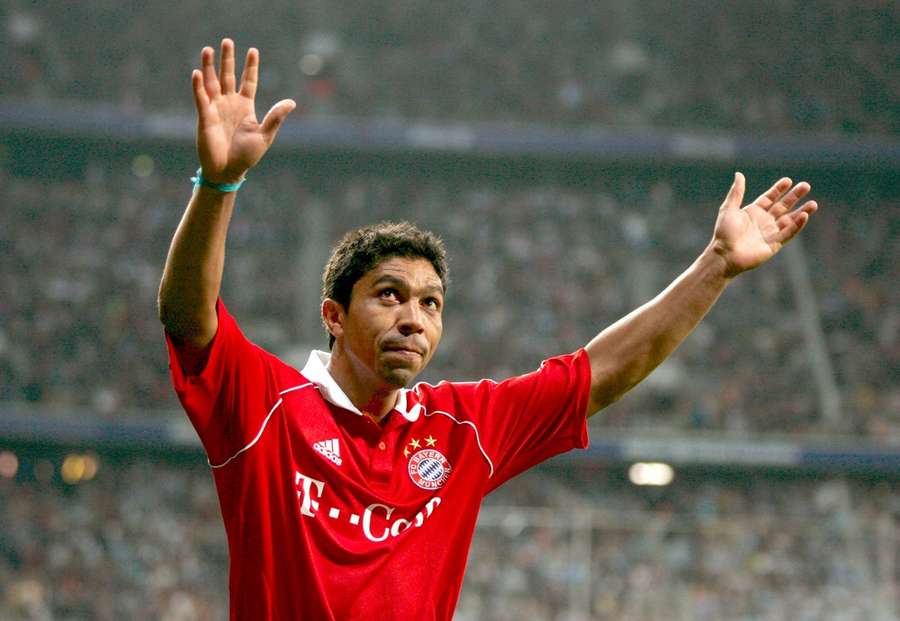
Do you believe that many youngsters go to Europe earlier than they should?
"It depends a lot on the boy, his head, his family and the support he has. If he has an honest manager, he will be well accompanied and will develop well. It's not easy to bring a boy to another world. It's another way of playing, another language, no friends, a transfer like this involves a lot of things. It's not just about playing football, there are other very important issues involved."
Is Brazil lacking in top-class strikers?
"Football today is not so much about the classic No9. The system of play has changed a lot, we have centre-forwards who come out of the box and fluctuate on the sides of the pitch. In Europe, it's rare to find this traditional No9."
After spending your career in Europe, you only had one club in Brazil: Cruzeiro. What can you tell us about your time in Belo Horizonte?
"If I'd known I was going to like it so much, I would have gone sooner. But I went after an ankle operation, I didn't play for a year and I played at the club for a season. The president was Zeze Perrella. The pains bothered me a lot and I spoke to him about my interest in terminating the contract. He did not want to, he said that the foreign media came to the club because of me. But I felt a lot of pain after the games, I couldn't train 100% and I saw a lot of kids with great talent asking for passage.
"I would be hindering their development and their opportunities. The fans in the stands didn't know the pain I was in, they had no idea I was playing with limitations and they might think I wasn't doing my best for the club.
"I didn't want that at all, I had already done my "stocking stuffer" and I wanted to be remembered as a player who did good things for the team, not as one who owed a lot. I gave everything I could for the club. My family loved the city, my children were very well received at school, it's a place I'll miss a lot."
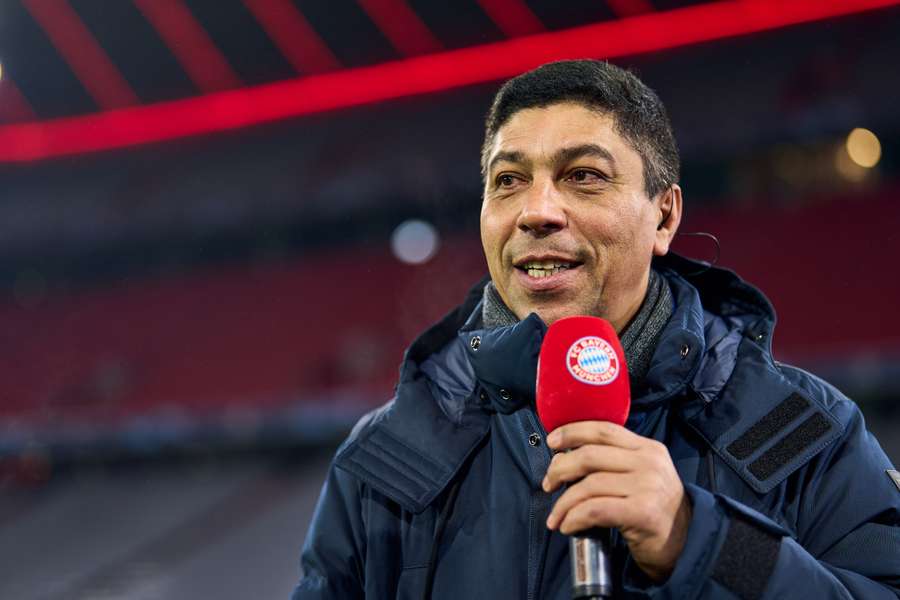
Do you think the Brazilian Championship in the 90s was stronger than the Bundesliga? When did the German Championship surpass the Brazilian one?
"It's difficult to compare them, they're different ways of playing, two very competitive tournaments. Those in Brazil who see Bayern Munich winning titles in sequence in Germany might imagine that things are easier here. But Bayern is a team that has prepared for this, that has been doing well for years.
"When we sell one player, we buy another to maintain our game plan. Every season, few pieces change, which makes it easier for newcomers to integrate into the system and the working philosophy. Brazil doesn't have an easy tournament, we have Palmeiras and Flamengo above the others and it's difficult to say which is the best."
What can Brazil learn from Germany, in the organisation of the clubs, the league, etc..?
"I think Brazil has been improving in some aspects, but what really makes the difference is the marketing area. That generates a lot of income. You can't pay a well-known player just with ticket sales. You need strong marketing. The club needs to partner with sponsors in a win-win relationship.
"Here in Germany, companies invest because they win, the club also wins, former players also win, it is a favourable combination for all sides. Everyone is happy presenting their brand. Brazil has advanced in this sense, but it still has a lot to grow in this area.
"In terms of organisation, there is no doubt that Germany has a much more positive scenario. The stadiums are always full, there is a queue of months to get a ticket for Bayern's matches. That gives players a sense of security, as they know when and how the tournaments will start and end. In this respect, Germany also has the edge over Brazil."
What do you think needs to be done to further democratise the Bundesliga?
"It's something very necessary and we have a big problem involving the financial issue. If you compare it to the English or Spanish leagues, the difference is huge. The teams who have just broken into the top flight in those countries earn the same money as Bayern, the multiple national champions. If there were more resources for the Bundesliga, there would be more interest for more money to be distributed to the smaller clubs, creating a much more interesting tournament.
"It's hard for the smaller clubs in Germany to keep up with Bayern Munich, who are in the Champions League every year, fighting for titles. Their opponents are really lagging behind, so you have to find a way to help the smaller clubs more. German football has to catch up with its rivals, who are 10 or 15 years ahead of us, by taking teams to pre-season training camps in Asia and the USA.
"We have a long way to go, we need to encourage clubs here to take games to other continents to learn for different audiences and schools, attracting more sponsors."
Would it be interesting for German football if Bayern won fewer titles?
"(Laughs!). We are trying to let others win, but they don't take their chances. In the Bundesliga we could be on an even better level, we've just had a change of coach. We dropped a lot of points, which hasn't happened in years. We allowed other clubs to get closer to the lead, but you have to do your part on the pitch.
"Players need to wake up every day knowing that they need to work hard to reach the end of the season and win the title. Bayern Munich will not let their rivals down. Borussia Dortmund took advantage, came close to the first position and even took the lead. But when it came down to it, in a game of six points, I think they felt the pressure inside our stadium."
How do you see this new-look German team?
It's a natural change, these kinds of changes happen at the end of every cycle. The team still has good players, but we don't know yet how they're going to respond within the national team. You have to be patient and polish them little by little. The coach is always at the games monitoring the players closely. The majority of players in the Germany squad are from Bayern Munich and Borussia Dortmund. From these teams, many can and should be taken advantage of.
Is impunity in Brazil something revolting?
"Too much! How can I take my son to the stadium with a scenario like the one we've seen of the Internacional fan who invaded the pitch, with his daughter in his arms, to beat up a Caxias player? In 10 or 20 years from now, that child won't be at the stadium. In Europe, the stadiums look like shopping malls, the matches are real events, full of family in a favourable environment.
"The children who turn up today are the ones who will buy shirts tomorrow and travel to see the team years later. This will continue to generate money within the club. It is inappropriate for a fan to come onto the pitch and attack an athlete, he needs to be arrested, he put his daughter at risk. What is he thinking?
"I understand the love for the club, but you have to be rational and not crazy to get to this point. If this happens in Germany, he will lose custody of his child, his membership card and will never enter a stadium again."
Do you like the idea of a foreign coach at the national team?
"I think it's great, but you have to let him work. You can't take Ancelotti away from Real Madrid and expect him to perform a miracle overnight, he needs time to do his job. He was at Bayern Munich, I had the honour of working with him at Milan, he's a spectacular guy. Whether it will work out or not is another question. In Brazil, we have a competent guy, Abel Ferreira, coach of Palmeiras. CBF is monitoring this situation and they will hire whoever they think is best."
What about golf as a hobby?
"After I finished my career, I went to live in Londrina, where there is a beautiful golf course. Every day I went out to play a little and I really enjoyed it. I still practice it in Germany, it is very common among former players. It is easier to find them in golf courses than in gyms.
"But I am not those crazy people who try to lower their handicap, at any moment, at any cost. I play quietly, for fun. If I'm not doing well, I grab a German beer and hit my ball until I reach the 18th hole. A nice side is the charity tournaments that generate income for social projects. One of my projects benefited from a tournament recently."
What is your social project like?
"It has existed since 1994, I help children and those who need it most. We help people in Nepal and India by taking water to schools, building artesian wells, trying to make a difference in places that suffer natural disasters. We helped people who were affected by the recent earthquake in Turkey too."
Is this a kind of attitude that is lacking in ex-athletes?
"I can't say, I think a lot of them do, and they help and don't advertise. It's an easy way to raise money with sponsors and help people who need it. It's nice to have our name behind it to help with this fundraising work, to show that it's something honest. We recently raised 22,000 Euros at a single charity dinner here in Germany."
